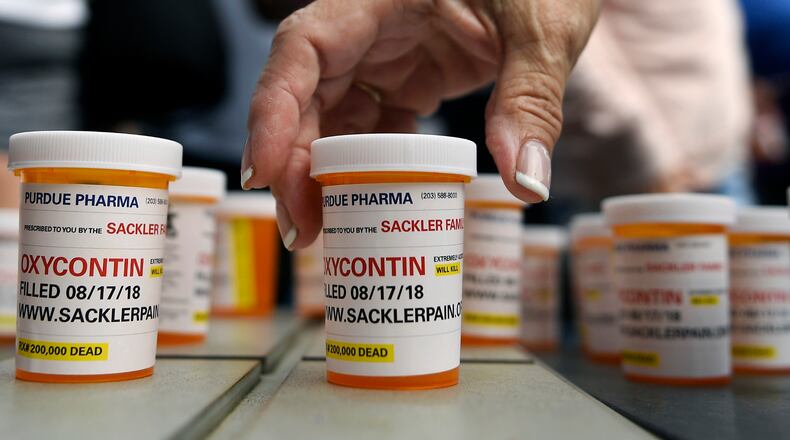Numbers cannot describe the tortuous decline of those who struggle with addiction.
Numbers cannot describe the burden felt by those who lose a loved one to addiction and will always feel they could have done more. Numbers cannot describe the anguish of losing a son or daughter; a sister or brother.
After years of the opiate crisis spinning out of control, leveling communities and destroying families, these numbers are no longer shocking. They are hardly surprising. What should be extraordinary is normalized. Because like many diseases, addiction is easy to ignore until it arrives in your home.
My brother never went a day without calling our mother. Even at his lowest points battling addiction, he made sure to call. Sometimes multiple times a day. Through his long struggle to get clean, in and out of rehab, he made time each day to make a call.
Until one day in early January 2015. Even before arriving at his house to check on him, I knew he was gone.
I was 38 weeks pregnant and did my best to keep it together. But for months, I would break down. It still doesn’t feel like he’s gone.
I spend a lot of time thinking about what could have helped Derek, and the countless families like mine who have similar stories to share. Would he have benefitted from better, more optimized and consistent care? Certainly. Could he have used more intensive individualized treatment and support? Without question.
But for those struggling with addiction, the path to recovery is flooded with opioids thanks to decades of behemoth drug manufacturers and consulting firms such as McKinsey and Company recklessly pumping addictive high-dosage painkiller pills into communities across Ohio.
Drug companies have no incentive to act in the best interest of the most vulnerable. When faced with the reality that lives are shattered by opioid abuse, these companies have time and again acted only in the interest of profit. Often with the assistance of consultancies like McKinsey & Company, which had consulting contracts with every major opioid manufacturer and distributor and helped them focus on their bottom line through creative FDA strategies and cutting-edge marketing initiatives to boost profits.
McKinsey recently agreed to pay $573 million as part of a settlement with 47 states related to its work helping to exacerbate the opioid crisis by “turbocharging” opioid sales. That’s less than 6% of their annual revenue. They also had contracts with the FDA to consult on drug approvals while also working for the drug makers!
For the sake of families impacted by addiction, and the many more who still struggle, we must do more, and we must do better. We must shake off the complacency and reignite the urgency in our efforts to eradicate addiction. Regulators must standardize proven and effective treatment methods. Our state and federal elected officials must hold companies like McKinsey truly accountable for their knowing involvement in this epidemic.
Because $573 million?
That’s just another number.
Jamie Castle lost her brother to addiction in 2015. Since then, she has started a family of her own in Springboro and has also started fostering children, many who are part of the foster care system due to their parents’ addiction.
About the Author
